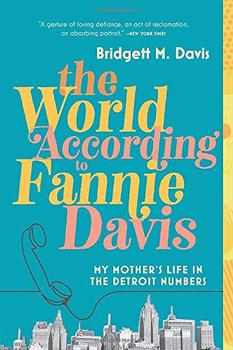Summary | Excerpt | Reviews | Beyond the book | Read-Alikes | Genres & Themes | Author Bio

A powerful, timely debut, The Turner House marks a major new contribution to the story of the American family.
The Turners have lived on Yarrow Street for over fifty years. Their house has seen thirteen children grown and gone - and some returned; it has seen the arrival of grandchildren, the fall of Detroit's East Side, and the loss of a father. The house still stands despite abandoned lots, an embattled city, and the inevitable shift outward to the suburbs. But now, as ailing matriarch Viola finds herself forced to leave her home and move in with her eldest son, the family discovers that the house is worth just a tenth of its mortgage. The Turner children are called home to decide its fate and to reckon with how each of their pasts haunts - and shapes - their family's future.
Already praised by Ayana Mathis as "utterly moving" and "un-putdownable," The Turner House brings us a colorful, complicated brood full of love and pride, sacrifice and unlikely inheritances. It's a striking examination of the price we pay for our dreams and futures, and the ways in which our families bring us home.
The Turner House opens in spring 2008, a time characterized by simultaneous despair and hope for Detroit's African-American community. On the one hand, the city was in the throes of financial crisis – unemployment was high and property prices had crashed to all-time lows. The novel uses African-American dialect and imagery to good effect. For instance, Viola says, "You know Cha-Cha's gone do what he wanna do. Ain't no democracy in this family." Her speech sounds authentic but doesn't tip over into the realms of caricature. The Detroit city motto would make a good one for the Turners, too. They have been through so much – addictions, losses, betrayals – but still, "We hope for better things."..continued
Full Review
(783 words)
This review is available to non-members for a limited time. For full access,
become a member today.
(Reviewed by Rebecca Foster).
In 2013, the city of Detroit declared bankruptcy. The decline of the automotive industry, the growth of the suburbs, unemployment, poverty, and high crime rate are all cited as factors in the city's decline. From a peak population of 1.85 million in 1950, the city shrank to around 700,000; it steadily leaked people to the Michigan suburbs or other parts of the country, especially after the 1967 riots. That amounts to a 60% drop in population. In 2013 the U.S. Department of Labor Bureau of Labor Statistics named Detroit's as the highest unemployment rate (23.1%) among the country's 50 largest cities.
 Over the period from 2007 to 2013, Detroit's property market crashed. One in five houses lay empty. Why? In many cases, residents found ...
Over the period from 2007 to 2013, Detroit's property market crashed. One in five houses lay empty. Why? In many cases, residents found ...
This "beyond the book" feature is available to non-members for a limited time. Join today for full access.

If you liked The Turner House, try these:

The World According to Fannie Davis
by Bridgett M. Davis
Published 2020
A singular memoir that tells the story of one unforgettable mother, her devoted daughter, and the life they lead in the Detroit numbers of the 1960s and 1970s.

by Yaa Gyasi
Published 2017
Winner of the 2016 BookBrowse Debut Author Award
A novel of breathtaking sweep and emotional power that traces three hundred years in Ghana and along the way also becomes a truly great American novel. Extraordinary for its exquisite language, its implacable sorrow, its soaring beauty, and for its monumental portrait of the forces that shape ...
The single biggest problem in communication is the illusion that it has taken place
Click Here to find out who said this, as well as discovering other famous literary quotes!